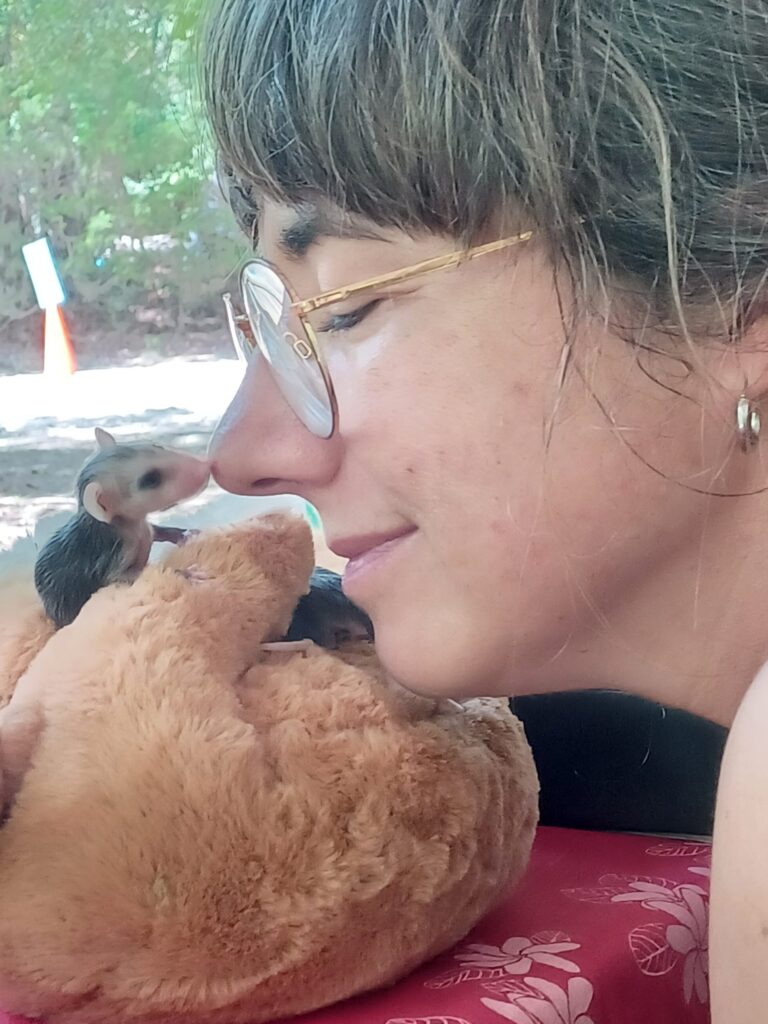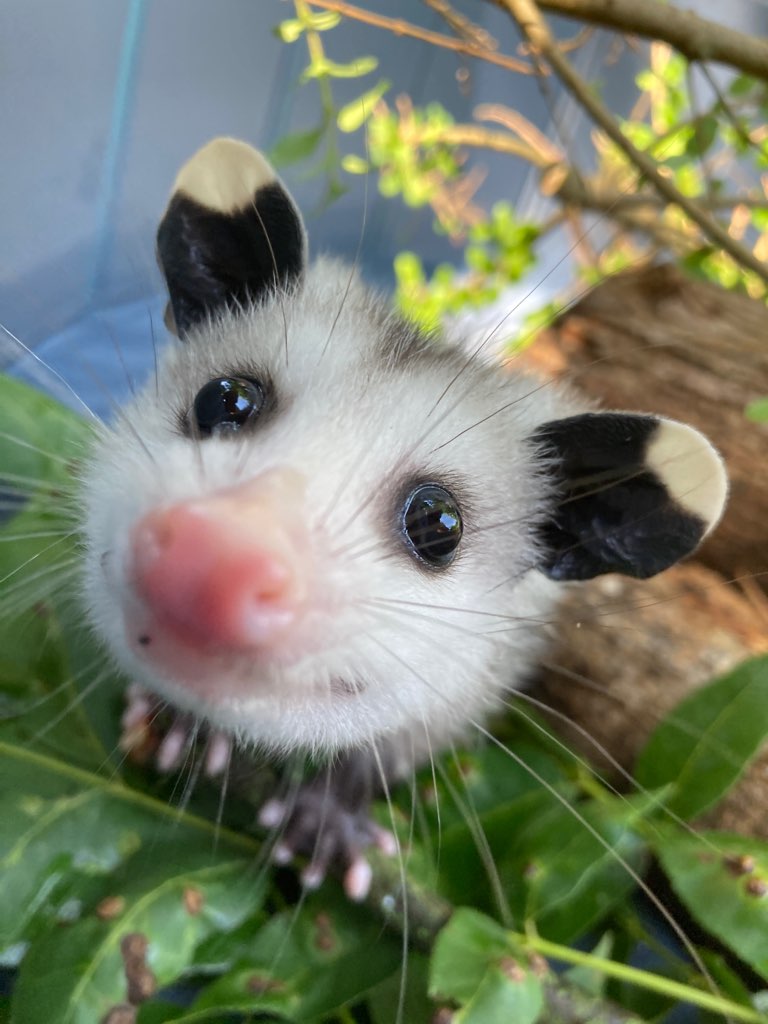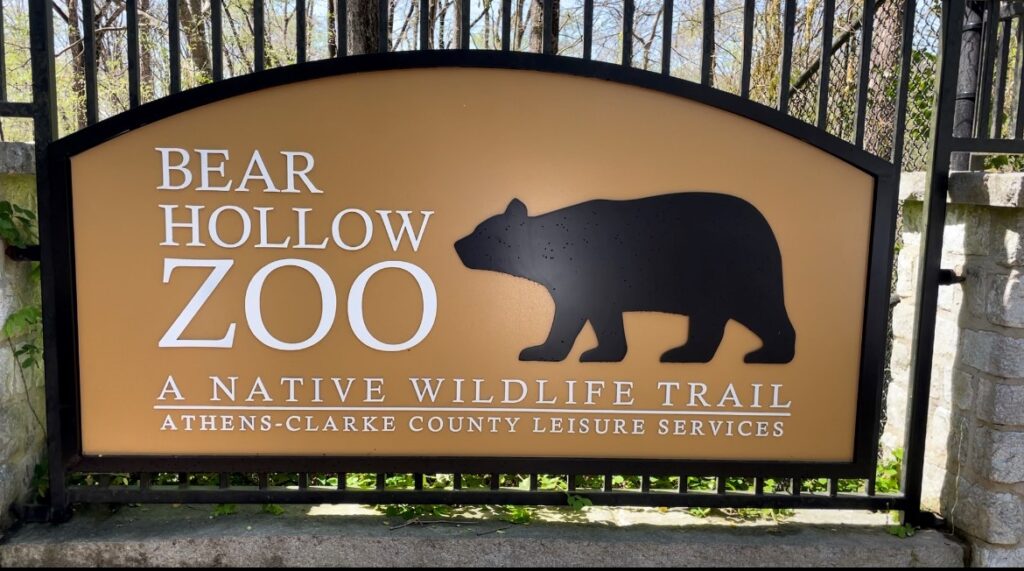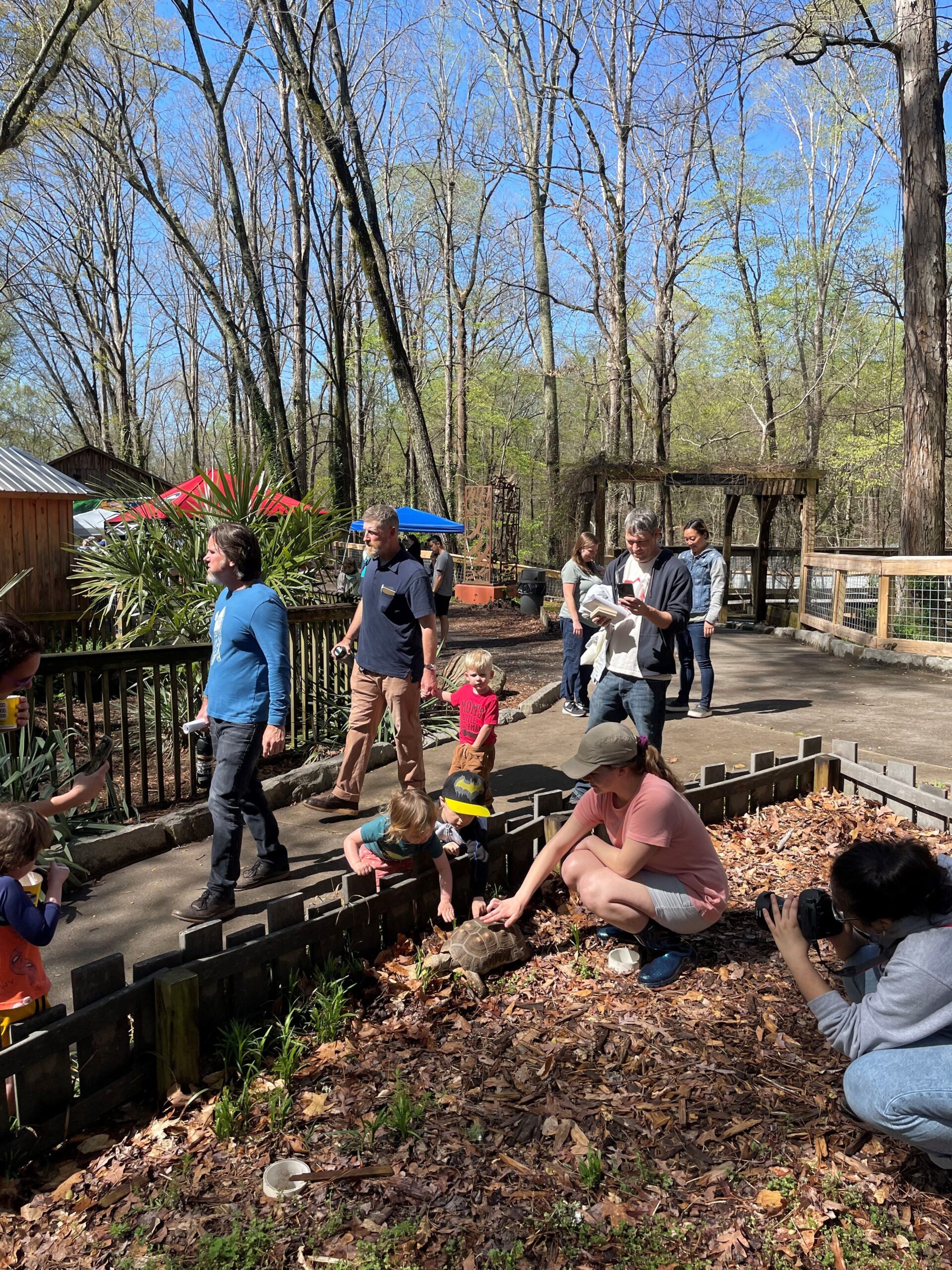Suzanne DeGrasse: ‘Primarily ‘possums’ rehabilitation vital in springtime
By Vaughan Stout
Multimedia (video, story)

Animal rehabilitator Suzanne “Suzie” DeGrasse speaks slowly and thoughtfully, the smile tangible in her inflections as she recounts stories of her childhood love for nature. When asked when her passion for wildlife was ignited, she paused thoughtfully before she answered. It was almost as if she were reminiscing on the life events that drew her towards animals at such an early age. DeGrasse was and remains “wild about wildlife,” making her work imperative to managing the influx of helpless animals that emerge in the warm seasons.
DeGrasse is an animal rehabilitator in Ila, Georgia, who specializes in the care of opossums, cottontail rabbits, armadillos and bats. Although she is licensed in the care of other small mammals and songbirds as well, she found that her skills and heart guided her toward the former, hence her slogan “primarily ‘possums, but bats and bunnies and oddballs too.”
With spring hitting its peak, summer quickly approaching and 330 species currently listed as protected in Georgia, animal rehabilitation is more important than ever. According to DeGrasse, the warm months signal the animal rehabilitation busy period, as animals begin having offspring and emerging from hibernation to get themselves in all sorts of trouble. This trouble is largely quelled and managed by caring individuals like DeGrasse, who derive pure joy and purpose from the safekeeping of defenseless creatures.

DeGrasse’s passion for defenseless creatures was present at a young age. She said she always found animals more interesting than people, even going as far to say that one of her favorite items when she was young was an animal encyclopedia. This love for animals grew throughout her life, until one event cemented animal rehabilitation in her mind.
DeGrasse had been working at a library for some time. One day it had the misfortune of being in the path of a tornado. After it passed, she arrived to find a young sparrow displaced from its nest. DeGrasse, struck by her animal compassion, made the decision: she would mother the young bird.
Although DeGrasse cared deeply for the bird and researched the correct caretaking methods, the bird was handicapped. DeGrasse was very pained by this, but it taught her that if she were going to nurse animals back to health, she needed to do it the right way.
The right way to aid helpless animals is often more complicated than one may think. According to the Georgia Department of Natural Resources, “most native species of wildlife cannot be held without permits or licenses,” meaning that most species can only be rehabilitated legally and safely by specialists like DeGrasse.
Using her extensive organization skills and memory, coupled with her master’s degree in library and information science, DeGrasse is able to competently handle the springtime patient influx. Although there are a slew of different care-taking requirements that vary greatly depending on the age and species of the animal, she does so with a smile on her face.
DeGrasse was thankful for the opportunity to be interviewed. Even when she is not saving the lives of animals, her compassion is palpable and a clear aspect of her character. She asked if this interview would be published, not because she was nervous of the press, but because she wants the world to know about the importance of animal rehabilitation.
Describing the most redeeming aspects of the job, she paused with each sentence, as if relishing the joy these acts brought her.
“On a daily basis, being their mom for a little while, meeting their emotional needs, keeping their immune systems strong, keeping them feeling safe. Possums rolled over with their bellies sticking up, feeling safe. I feel proud to be a part of it,” Degrasse said.
Animal care is going to be increasingly important in the coming months as wildlife and their young begin finding themselves in distress. Compassionate rehabilitators will rise to the occasion. People who are kind to others, but have a unique connection with wildlife. People whose voice wavers when they mention the rewarding feeling of brief animal motherhood. People like Suzanne DeGrasse.
“Animals make more sense than people,” DeGrasse said.
Why I Wrote the Story:
This story has been my favorite story by far. I met Suzie DeGrasse briefly when writing my event coverage story, and I immediately knew I wanted to write my profile story on her. I wanted to showcase her passion and the importance of her career, both of which are dedicated to creating a safe environment for vial members of our ecosystem.

